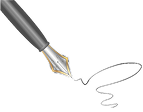Introduction
Taxation theory is the set of rules, regulations, and policies that are formulated by the government for companies, individuals, firms, and others. It should be followed by the tax consultant while calculating the tax liability and total tax payable by the company or individual. This is decided by the government or the legal authority of the country (Baldwin, Cave, and Lodge, 2012). The Australian government has also declared different tax laws that are implemented within the country. In this project report, two different taxation systems are followed: one is capital gain, and the other is fringe benefit. The main purpose of these project reports is to gather knowledge of Australian taxation law and its regulations.
This report is based on a tax calculation done by a tax consultant in Mayfield, New South Wales, Australia. In the first case, the client is an antique collector and investor and has sold different assets; in the second case, advice is provided to the company, and a tax consultant is required to calculate tax liability for both cases.

Stuck with your Assignment?
Hire our PROFESSIONAL ASSIGNMENT WRITERS and Get 100% Original Document on any Topic to Secure A+ Grade
Get Assignment Help
Task 1
Australian taxation laws are applied in Mayfield, New South Wales, which is an Australian community. It is the liability of a tax consultant to calculate the taxable amount and payable taxes. In this case, the client is an antique collector and an investor too. In 2017, many assets are bought and sold by the client, and a tax consultant is hired to calculate the tax liability. For this purpose, all the Australian taxation laws are followed, such as income tax and GST taxation (Boll, 2014). The amount received or paid while selling or purchasing assets is considered a capital gain or loss. Hence, in this particular case, the taxation will be calculated under the capital gain head. The client is not running a business; hence, the tax liability will be calculated on an individual basis. In this particular case, capital gain and insurance claim tax will be followed.
A Block of Vacant Land
In this case, the client has a contract to sell vacant land for $320,000, which was purchased in January 2001 for $100,000, and the additional expenses that are incurred by the client are $20000 for water and sewerage. Selling land is an investment activity that will be taxable under the capital gain head.
Related regulations: In this case, capital gain taxation laws are going to be followed. According to capital gain taxation law, vacant land will be considered an investment, which is an immovable asset that is considered an investment after September 20, 1985 (Capital gain tax, 2018). According to the taxation authority of Australia, vacant land will be taxable under the capital gain head, and the rules are the same as for other assets. It will be calculated under sections 110-25 (2), 110-25 (4), and 115-25 (1) because the land was purchased on August 20, 1991. The calculation of the total taxable amount is as follows:
Cost base calculation on 3/06
|
Acquisition Cost of Vacant Land |
100000 |
|
Add statutory rates and taxes. |
20000 |
|
UN-indexed Cost Base |
120000 |
Calculation of Sale Proceeds
|
Particulars |
Amount |
|
Sale income from land |
320000 |
|
Less index cost of acquisition |
120000 |
|
Gains for next year |
200000 |
Interpretation: From the above tables, it has been determined that the total taxable amount for the year ending June 30, 2018 is $200000, which is calculated according to Section 115-25 (1). A capital gain has occurred because the total capital gain was higher than the cost of the land.
B. Antique Bed
In this scenario, the client is demanding an insurance claim on his antique bed, which was stolen. It was purchased in 1986 for $5000. In this amount, all the expenses are included that are spent by the client. It was stolen from the house of the client; at that time, the value of this bed was $25,000. The client claimed for insurance on November 17, 2017. But the insurance company has refused the request for an insurance claim, as such types of assets are not mentioned in the insurance claim law. The client has received $11,000 by compromising with the insurance company.
Related regulation: In this scenario, two different laws are implemented by the tax consultant: the first is capital gain under the Income Tax Act of 1997, and the second is the Insurance Act of 1984. It will be treated under Section 104-20(1), which is for stolen items. The antique items are recorded under sections 108-10 (12) (Braithwaite, 2017). As the cost of the asset is greater than $500 and used for personal use by the client, Section 118-110 (1) is going to be applied here. Capital gain for the client is calculated as follows, according to Section 115-25 (1):
Calculation of the index cost of the bed
|
Particulars |
Amount |
Indexation Factor |
Net Amount |
|
Cost of acquisition of an antique bed |
3500 |
1.59 |
5565 |
|
Add the index cost of improvement. Additions |
1500 |
1.55 |
2319 |
|
Indexed Cost Base |
5000 |
|
7884 |
Index factor for cost of acquisition and cost of improvement as per index reference base (2011-12)
|
|
Index value |
Year |
|
Cost of bed |
77.6 |
Quarter ending September 1986 |
|
Additional cost |
79.8 |
Quarter ending December 1986 |
|
Index when the bed was stolen |
123.4 |
On September 31, 1999 |
Computation of a taxable insurance claim
|
Particulars |
Amount ($) |
|
Claim from the Insurance Company |
11000 |
|
Less: Indexed Cost Bed |
-7884 |
|
Net Capital Gain/Loss |
3116 |
Interpretation: From the above calculation, it has been observed that the total taxable amount for the client is $6000 ($11000-$5000) under Section 115-25(1), which is received from the insurance department in full settlement by compromising for the same as the asset was stolen from the house. The tax liability for the client is $3116. $25000, which was the market value, will not be considered as it is irrelevant under this case, and the amount received from the insurance company, which was $11000, will be considered as the capital gain from the bed.

C. Painting
In this scenario, the client has sold a painting for $125,000, which was purchased on May 2, 1985, for $2000 from a very famous Australian artist (Dowling, 2014). This painting was sold by the client on April 3, 2018 in an auction. This will be taxable under capital gain taxation.
Related regulation: It will be considered a capital gain under Section 104-A as it is a CGT asset. The painting was purchased before September 20, 1985, and it will be considered a pre-CGT asset because the asset was purchased on May 2, 1985. The painting will not be considered collectable because it was purchased for investment purposes and not for personal use. The calculation of tax and taxable amounts is as follows:
Calculation of taxable capital gain or loss from painting
|
Particulars |
Amount |
|
Sale proceeds from painting |
125000 |
|
Less: cost base |
-2000 |
|
Net capital gain or loss for next year |
123000 |
Interpretation: The total capital gain for this scenario was $123000, which was calculated by subtracting the amount of the purchase from the sales. ($125000-$2000). The assets were purchased before September 20, 1985; hence, they will be treated as pre-capital gain tax under Section 104-10(5).
D. Shares
In this scenario, the client has a portfolio of shares in which they own different types of shares. The shares are sold and purchased by the client within a specific time period. It has done so to acquire a capital gain. It includes stamp duty and brokerage.
Related regulation: It will be treated under Section 104-10(1). It will be calculated according to the Australian capital gain taxation laws (Gracia and Oats, 2012). The indexation cost will not be applicable in this scenario as the shares were purchased on September 21, 1999. The calculation for the taxation amount for shares is as follows:
(i) Trade of Common Bank Ltd. shares
Purchase Cost of Shares
|
Particulars |
Amount |
|
Cost of Purchase per Share (a) |
15 |
|
No. of shares purchased (b) |
1000 |
|
Add stamp cost to purchases (c) |
750 |
|
Net purchase cost d=(a*b)+c |
15750 |
Proceeds from the sale of shares
|
Particulars |
Amount |
|
Sale Price per Share (a) |
47 |
|
No. of shares sold (b) |
1000 |
|
Less Brokerage Paid (c) |
550 |
|
Net sales value e=(a*b)-c |
46450 |
Net Capital Gain/Loss
|
Particulars |
Amount |
|
Gain/Loss (e-d) |
30700 |
(ii) Trade of PHB Iron Ore Ltd.
Purchase Cost of Shares
|
Particulars |
Amount |
|
Cost of Purchase per Share (a) |
12 |
|
No. of shares purchased (b) |
2500 |
|
Add stamp cost to purchases (c) |
1500 |
|
Net purchase cost d=(a*b)+c |
31500 |
Proceeds from the Sale of Shares
|
Particulars |
Amount |
|
Sale Price per Share (a) |
25 |
|
No. of shares sold (b) |
2500 |
|
Less Brokerage Paid (c) |
1000 |
|
Net sales value e=(a*b)-c |
61500 |
Net Capital Gain/Loss
|
Particulars |
Amount |
|
Gain/Loss (e-d) |
30000 |
(iii) Trading of Young Kids Learning Ltd.
Calculation for net capital gain or loss
|
Particulars |
|
Amount ($) |
|
Sale proceeds as per the current tax year |
0.5*1200 |
600 |
|
Less: Cost of base |
($5*1200) |
-6000 |
|
Less: Brokerage cost |
|
-100 |
|
Less: Stamp Duty |
|
-500 |
|
Net Capital Gain/Loss |
|
-6000 |
There is a capital loss of $6000 for the client.
(iv) Trading of Build Ltd.
Calculation for net capital gain or loss
|
Particulars |
|
Amount ($) |
|
Sale proceeds as per the current tax year |
2.5*10000 |
25000 |
|
Less: Cost of base |
($1*10000) |
-10000 |
|
Less: Brokerage cost |
|
-900 |
|
Less: Stamp Duty |
|
-1100 |
|
Net Capital Gain/Loss |
13000 |
Interpretation: From the above tables, the calculation of the taxable amount for the clients for shares is calculated. The client has received capital gains of $30700, $30000, -$6000, and $13000. Indexed costs are not considered because the shares were purchased after September 21, 1999.
E. Violin
In this scenario, the client owns a violin, which was sold on May 1, 2018 by the client to the neighbour (Maddison and Denniss, 2013). It was sold for $12000, and it was acquired by the client on June 1, 1999, for $5500.
Related regulation: It will be treated as capital gain tax because the violin was purchased for personal use by the client. The client used the violin a lot and then sold it to the neighbour. It will be treated under Section 108-20(2).
Calculation for net capital gain or loss
|
Particulars |
Amount ($) |
|
Sale proceeds from the sale of violins |
12000 |
|
Less: Cost of base |
-5500 |
|
Net capital gain or loss |
6500 |
Interpretation: The net capital gain under this scenario is $6500, which is identified from the above table. It was calculated under two sections, one 108-20 (2) and another 104-10 (1), as ownership was transferred by the owner to the neighbour.
Adjustment of capital loss
Section 995-1 will be considered while calculating the total taxable income from the client. Current-year loss, which is not eligible for a 50% discount under Section 115-25 (1). Therefore, the capital loss of $6000 will be adjusted with the capital gain earned from building shares of $13000 used to set them off. The net capital gain will be $7000 (McGee, 2014).
|
Particulars |
Amount ($) |
|
Capital gain from shares |
13000 |
|
Less: capital loss |
-6000 |
|
Capital gain for tax |
7000 |
Total taxable liability
|
Particulars |
|
Amount ($) |
|
Capital gain from the sale of land |
(200000*50%) |
100000 |
|
Antique bed |
(4500*50%) |
2250 |
|
Capital gain from the sale of common bank shares |
(30700*50%) |
15350 |
|
PHB iron shares |
(30000*50%) |
15000 |
|
Net capital gain tax |
|
132600 |
TASK 2
Advise on FBT Consequences and Calculation of FBT Liability on Rapid Heat
Case scenario:
According to the provided case scenario, Rapid Heat Limited is a manufacturing company that operates electric heaters. Jasmine, an employee of this company, has received a car from the company that is used for work and other purposes. Along with the car, Jasmine has also received a loan of $50000 at an interest rate of 4.25%, which is used for the purchase of a holiday home, and some of that amount is lent to her husband (Mumford, 2017).
Related regulations:
In order to ascertain the tax liability of Rapid Heat Limited, the tax that is applied to this company is fringe benefit tax. This tax regulation is concerned with the benefits that are provided to employees by their company, against which the company has to pay some value as tax. FBT is a tax applied within the Australian tax system by the Australian taxation office. This tax is applicable to most non-cash benefits that are provided to employees as a result of their contributions to the company. This tax implies liability on the employer and not on the employee.
Calculation of the taxable amount:
According to fringe benefit tax, a motor vehicle, which is a car in this case, has to fulfil various conditions, such as being a sedan or station wagon. The vehicle must be a four-wheel-drive vehicle. From the information that is provided in the case scenario, it has been observed that the car was received by Jasmine on May 1, 2017, and tax is needed to be calculated for the year of 335 days, that is, from May 1, 2017 to March 31, 2018. In this period, it is analysed that the employee has travelled 10000 km by car and has also incurred a few expenses on her own end amounting to 550 dollars for which she has received reimbursements (Pickhardt and Prinz, 2014).
As additional information, it has been informed that the car was parked at the airport for 10 days, which is not counted as days of employee's personal use.
The number of days for which tax liability is ascertained is 335, but 5 days of repairs are deducted, which gives 330 days of tax liability to the company. The formula for calculating this tax liability is (0.2 * base value of the car * number of days during that year of tax on which the car fringe benefits were provided by the provider / number of days in that year of tax) - amount if any paid by the recipient.
= [(0.2 * 33000 * (330/365)]
|
Particulars |
Amount |
|
Base value |
$33,000 |
|
Number of days for FBT |
330 |
|
Number of days in that year |
365 |
|
FBT liability for the taxable year |
6057.53 |
Along with the car, a loan was also provided to the same employee named Jasmine. The loan was valued at 500000 dollars at a rate of 4.5%. The amount of the loan was utilised as 450000 dollars was used to purchase a holiday home and 50000 was lent to Jasmine's husband for the purchase of shares in Telstra. According to the rule of fringe benefit tax, if the amount of the loan is used for the purchase of securities, the taxable amount would be nil.
Along with the loan, an electric heater worth 1300 dollars is purchased, of which the manufacturing cost was 700 dollars and its selling price in the market was 2600 dollars. The calculation of fringe benefit tax, along with consideration of the car, loan amount, and electric heater, is as follows:
|
Particulars |
Amount |
|
Purchase price of an electric heater for Jasmine |
$1300 |
|
Manufacturing cost for rapid heat |
$700 |
|
The actual selling price of an electric heater |
$2600 |
|
Fringe benefit tax rate |
47.00% |
|
Amount on which fringe benefit tax will be levied (2600-1300-700) |
$600 |
|
Fringe benefit tax liability ($600*47%) |
$282 |
From the above calculation., it can be said that Rapid Heat is liable to pay input tax credit in relation to GST-inclusive acquisitions (Rose and Karran, 2018). GST credit is also claimed on the price of the electric heater. A total of 282 dollars is liable for the company to pay.
Variation in FBT Liability
According to the case, tax liability is ascertained below if the amount received as a loan of $50,000 is used as an investment in shares instead of lending money to her husband. The FBT liability to the company is ascertained below:
|
Particulars |
Amount |
|
Actual interest rate levied by the employer |
4.25% |
|
Statutory interest rate as prescribed by the Reserve Bank of Australia |
5.50% |
|
Amount of which shares are purchased |
$50000 |
|
Time duration of loan for which interest needs to be charged (1 September 2017 to 31 March 2018) |
212 days |
|
Total FBT liability for loan ($50000 * 5.50%) - ($50000 * 4.25%) * 212/365 |
$363 |
Conclusions
From the above project report, it has been determined that two types of taxation laws are followed by a tax consultant: capital gain tax and fringe benefit taxes. Capital gain taxes are for investments and other capital assets. Fringe benefit taxes are those taxes that are implemented on the benefits that are provided by the employer to its employees.
References
Books and journals:
- Baldwin, R., Cave, M., and Lodge, M., 2012. Understanding regulation: theory, strategy, and practice. Oxford University Press is on demand.
- Boll, K. (2014). Mapping Tax Compliance: Assemblages, Distributed Action, and Practices: A New Way of Doing Tax Research. Critical Perspectives on Accounting, 25(4-5), pp. 293-303.
- Braithwaite, V., 2017. Taxing democracy: Understanding tax avoidance and evasion. Routledge.
- Dowling, G. R. (2014). The curious case of corporate tax avoidance: Is it socially irresponsible?. Journal of Business Ethics, 124(1), pp. 173-184.
- Gracia, L., and Oats, L., 2012. Boundary work and tax regulation: A Bourdieusian view. Accounting, Organizations, and Society, 37(5), pp. 304-321.
- Maddison, S., and Denniss, R., 2013. An introduction to Australian public policy: theory and practice. Cambridge University Press.
- McGee, R. W., 2014. The Ethics of Tax Evasion: A Case Study of Brazil. In Handbook of Research on Economic Growth and Technological Change in Latin America (pp. 374-393) IGI Global.
- Mumford, A., 2017. Taxing culture: towards a theory of tax collection law. Routledge.
- Pickhardt, M., and Prinz, A., 2014. Behavioral dynamics of tax evasion: A survey. Journal of Economic Psychology, vol. 40, pp. 1-19.
- Rose, R., and Karran, T., 2018. Taxation by political inertia: Financing the growth of government in Britain. Routledge.


 Company
Company













